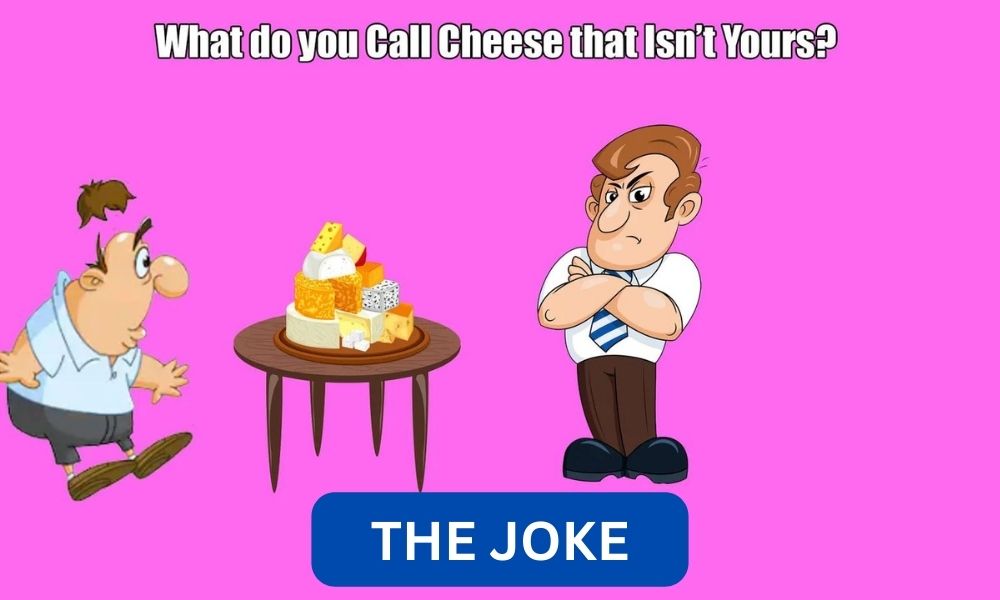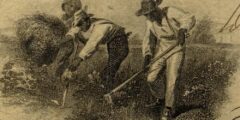Have you ever heard the joke, “What do you call cheese that isn’t yours? Nacho cheese!”? This playful question has been a popular punchline for years, often eliciting a chuckle or two. But have you ever wondered about the origins of this joke or the deeper meaning behind it? In this article, we will explore the history, cultural significance, and linguistic aspects of this cheesy riddle.
Contents
The Origins of the Joke
Like many jokes, the exact origins of the “What do you call cheese that isn’t yours?” joke are difficult to trace. However, it is believed to have emerged in the late 20th century, gaining popularity through word-of-mouth and eventually spreading through various media channels.
One theory suggests that the joke may have originated in the United States, where cheese is a staple food and humor often revolves around puns and wordplay. The joke’s simplicity and universal appeal have contributed to its enduring popularity.
The Cultural Significance
While the joke may seem lighthearted and trivial, it reflects deeper cultural values and attitudes towards ownership and sharing. In many cultures, sharing food is seen as an act of generosity and community-building. The joke plays on the idea of someone claiming ownership over something that is meant to be shared, highlighting the absurdity of such possessiveness.
Read:A relationship between two species in which both species benefitFurthermore, the joke can be seen as a commentary on the human tendency to hoard resources and claim ownership over things that are not inherently ours. It serves as a gentle reminder to let go of possessiveness and embrace the spirit of sharing and collaboration.
The Linguistic Aspect
Aside from its cultural significance, the joke also showcases the linguistic playfulness of the English language. The punchline relies on a pun, a form of wordplay that exploits multiple meanings or similar sounds of words. In this case, the word “nacho” sounds similar to the word “not your,” creating a humorous twist.
Puns have been a popular form of humor throughout history, and they often rely on the listener’s ability to make connections between different words or phrases. The “What do you call cheese that isn’t yours?” joke demonstrates the power of language to create humor through clever wordplay.
Examples and Case Studies
To further illustrate the impact and popularity of this joke, let’s explore a few examples and case studies:
Example 1: Social Media
In the age of social media, jokes and memes spread like wildfire. The “What do you call cheese that isn’t yours?” joke has become a popular meme format, with variations and adaptations shared across platforms like Twitter, Instagram, and TikTok. This widespread circulation has contributed to its continued relevance and popularity.
Read:a west wing special to benefit when we all voteExample 2: Advertising
Brands and advertisers often leverage popular jokes and memes to create engaging content and connect with their target audience. The “What do you call cheese that isn’t yours?” joke has been used in various advertising campaigns, particularly in the food and beverage industry. By incorporating this joke into their marketing strategies, brands can tap into the familiarity and humor associated with it.
Case Study: The Nacho Cheese Incident
In 2014, a peculiar incident involving nacho cheese made headlines around the world. During a baseball game in the United States, a fan was caught on camera dipping a nacho chip into a communal cheese sauce and then double-dipping it. The incident sparked a heated debate about food etiquette and sharing. The “What do you call cheese that isn’t yours?” joke resurfaced in various news articles and social media discussions, adding a humorous twist to the incident.
Key Takeaways
After exploring the origins, cultural significance, and linguistic aspects of the “What do you call cheese that isn’t yours?” joke, we can draw several key takeaways:
Read:How did the headright system benefit planters?- The joke originated in the late 20th century and gained popularity through word-of-mouth and media channels.
- It reflects cultural values related to sharing and ownership.
- The joke showcases the linguistic playfulness of the English language through puns.
- Examples and case studies demonstrate the joke’s impact in social media and advertising.
In conclusion, the “What do you call cheese that isn’t yours?” joke may seem like a simple riddle, but it carries deeper cultural and linguistic significance. It serves as a reminder to embrace the spirit of sharing and collaboration, while also showcasing the power of language to create humor through clever wordplay. So, the next time you hear this joke, remember the rich history and meaning behind it.






